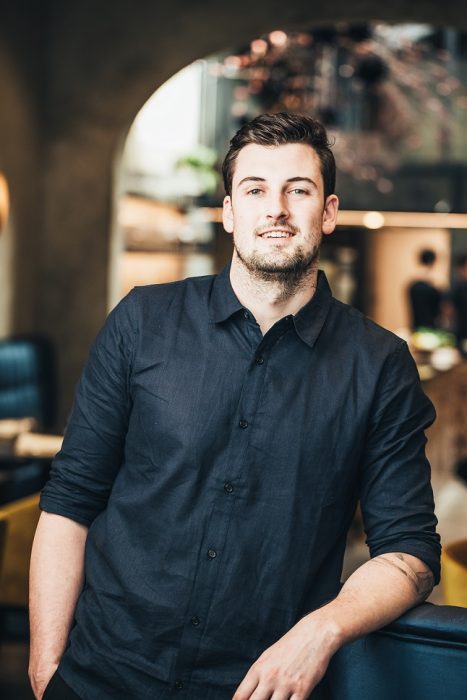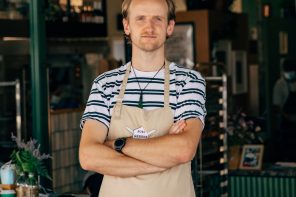Although leaving school at the age of 15, Fraser McCarthy didn’t let anything get in the way of him getting involved in the food industry. From an early age, he always had a thing about food. “I used to work in cafes in the weekend for experience and to gain valuable knowledge,” said McCarthy. He went on to culinary school before landing his first real restaurant job with Mike Van de Elzen at Molten in Mt Eden. It wasn’t long before McCarthy’s interest in fine dining took over and a few years at Molten lead to him moving to The Grove under Ben Bayly. “After a while, I knew that I needed to broaden my horizons and experience different cultures and cuisines, so I moved overseas for a while, and when I came back to New Zealand, my mindset had really changed, and I was set on finding the right place to open my own restaurant.”
In 2017, McCarthy and his partner found the site in Grafton, Auckland that his restaurant Lillius is currently located. “Our desire was and remains the expression of all things New Zealand, and it is critical to us that we utilise NZ-based product in our food style and look to represent favourite and beloved recipes of the past and represent them with a modern twist.”
In the first year of business, McCarthy found himself changing the menu every two to three weeks. The idea behind this was to show guests that ‘seasonal’ didn’t just mean spring, summer, autumn and winter, but that it can change depending on the weather conditions and whether it rained too much or was too hot. “Having awareness for this, especially when buying locally is important, and I want to support these businesses that are working hard to grow quality NZ produce.”
The Lillius dining experience is a unique one. McCarthy’s delivery style and the focus on the taste of New Zealand make for a truly authentic meal centred on ethical provenance. It’s very name, ‘Lillius’, means to keep everything simple and pure. However, there is more to it than just simple food – his Grandmother’s name was Lillias, and from a young age, McCarthy was drawn to the name. “When my partner Shannon and I investigated the meaning and found it meant ‘pure’, we felt it was a perfect description for the style of food we wanted to provide in our restaurant. However, we decided to change the spelling slightly to make it our own.”
The kitchen space has been designed to be open as McCarthy, and his team enjoy interacting with customers, and immediate feedback is always great for kitchen morale.
Although small, the team at Lillius is a coherent one. “Keeping it open and always up for discussion means that everyone has that feeling of interaction and contribution with the dish and can be proud of the food we serve.”

Something that may not always be obvious to the diners, however, is the ’restaurant’s commitment to the environment, particularly in the kitchen. “We are passionate about nil waste. The sourdough bread that we make here gets recycled. Currently, I have a beer, soy sauce, miso and sorbet in the making that is all sourdough based. Any vegetable trimmings get used for stocks, purees or dried into vegetable ash for our gluten-free bread.” Coffee grinds are used as a base to a sauce on its pumpkin dish and butter is made for the guests and for cooking in the kitchen, meaning buttermilk is always on the menu somewhere. “I find it exciting thinking of the ways to use these products differently instead of what they would normally be used for.”
Over the years, McCarthy puts the evolution and refinement of his dishes down to increased experience and knowledge, experimentation and trial and error. “I like to think that I have developed my own style and tweak it as I progress.” This, McCarthy believes, is all part of the journey of exploring options and linking them with the feedback given by customers and will always encourage him to experiment and product his own style of food.
“Opening Lillius has allowed me to express myself in the kitchen, and every day I am looking at ways of improving on the day before, a chef and restaurateurs work is never complete.”







